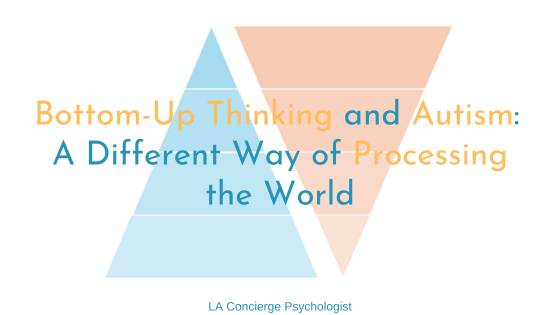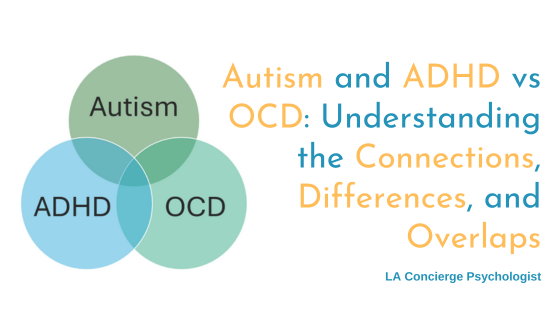Did you know that autism and the love of lists often go hand in hand? Many autistic people create lists of their favorite songs, shows they want to watch, or recipes they want to try, among many others. This affinity for lists is common enough that many people wonder whether making lists is a sign of autism.
On the contrary, there are many allistic (non-autistic) people obsessed with lists, and plenty of autistic people who aren’t. Regardless of whether your autism happened to come with a preoccupation with lists, you can leverage their power in the context of mixed neurotype (with an autistic partner) relationships.
Lists can do everything from preventing disagreements to facilitating better date nights. Here are 10 benefits they can provide in your romantic relationship:
1. Increased appreciation
Do you or your partner worry that household duties aren’t divided fairly? Make a list of the chores each of you regularly completes. Next, look over each other’s lists to gain a fuller appreciation of the invisible work each of you is doing.
For example, it may be that your partner sweeps the kitchen floor every day before you come home from work. But you never realized they were doing it that often because you never noticed how often it got dirty. It was always clean when you got home, and why would anyone sweep a clean floor? Reviewing each other’s task lists will help you see and appreciate each other’s efforts.
2. A more reliable routine
If you are autistic, you probably prefer your day-to-day experiences to be as predictable as possible. Maybe you can picture your ideal routine in your head, but your partner isn’t fully aware of it.
Writing down your routine in the form of an ordered list will make it easier to communicate with your partner. Once they understand your preferred routine, they will be more likely to respect it. At the very least, they can alert you to future deviations further in advance, giving you a chance to mentally prepare.
3. More efficient planning
Many autistic people are naturally curious and enjoy researching things in depth. This autism trait can lead to more thoughtful decisions, but it can also leave you vulnerable to distractions. For example, imagine you are planning a trip with your partner to see the Eiffel tower. You spend so much time researching the endless locations, restaurants, and activities available that you never get around to actually booking anything.
You can streamline the process by making a list of trip-planning tasks and tackling them in order. For example, it might make sense to choose a hotel first, so it doesn’t sell out. Once you’ve booked the room, you can pick which restaurants, etc. to visit based on your location. This structured approach will allow you to complete your planning more efficiently—something that may help prevent arguments or tension with your partner.
4. More thoughtful life choices
Our clients sometimes wonder how their autism affects decision-making. Indeed, for many people, indecisiveness is part of their autism. It makes difficult decisions particularly tiring and time-consuming.
If you’ve been struggling to make a big life decision, both you and your partner may feel stuck. If your indecision goes on long enough, your partner may become dissatisfied or frustrated with the stagnancy of your situation. It might even lead them to question the relationship.
Analysis paralysis is often part of autism, but lists can help prevent this. For example, if you’re wondering whether to take a new job, you could write down a list of potential pros and cons, then assign a weight to each one according to its relative importance. This process can help you escape analysis paralysis and take actions that improve your life and your partner’s.
5. Faster task completion
The inability to mentally filter irrelevant stimuli is a common struggle for autistic people. So, when your partner sends you to the store to get ingredients for sandwiches, you might be distracted by the sights, sounds, and smells around you. You might also be overwhelmed by the vast number of available choices. In the end, you come home with only half of the items your partner needs.
Creating a list and bringing it with you can help you complete this task more quickly by giving you something to return your focus to amidst all of those stimulations and distractions. You’ll complete your trip more speedily and arrive home with everything your partner needs to make your meals.
6. More energy for your relationship
Many autistic adults have a seemingly endless list of responsibilities but a minimal supply of energy. Can you relate? If you don’t ration your internal resources, you’ll burn out. This may make you more likely to snap at your partner and prevent you from being there for them when they need you.
You can rational your internal resources by selecting which activities you will participate in and which you will not. You can do this most effectively by—you guessed it—making a list of your daily responsibilities. Write down everything you want to accomplish and when, perhaps using a calendar to help you visualize each day of the week.
Fix days that are too busy by shifting some things or opting out. For example, you might decide to send your friend a gift in the mail rather than attend her baby shower. Or perhaps you’ll bring store-bought rolls to Thanksgiving dinner instead of homemade ones. By more intentionally managing your energy, you’ll have more time and energy to devote to your relationship.
7. Less arguing/resentment over household duties
It’s a common scenario in mixed neurotype with autistic partner or neurotypical relationships: one partner thinks they are doing more work than the other. Sometimes both partners feel this way, so who is right? This discussion rarely ends well, but you can avoid it altogether by making a list of household duties and dividing it fairly between you.
Sit down with your partner and write down all household duties. Keeping in mind your strengths, preferences, and autism-related struggles, create a to-do list for each of you that feels fair and doable. Treat this exercise as an opportunity for joint problem-solving without venting at your partner or blaming them. Once you’re both confident that each person will be doing their fair share, resentment will evaporate, and future arguments will be prevented.
8. A fairer distribution of your household’s “mental load”
Are you familiar with the concept of a mental load? A household’s mental load comprises all the things that must be managed and remembered to function effectively. The mental load isn’t the physical act of doing the laundry, or scheduling the car repair appointments, or cooking the meals—it’s the mental energy required to manage, assign, and execute those tasks.
Don’t underestimate how much time and effort it takes to figure out what needs to be done, when it should be done, and who will do it. You and your partner can define and divide your household’s mental load by adding any management-related tasks to your household to-do list. This way, only one person has to think about and coordinate each task, minimizing your overall mental load.
9. Better date nights
Your idea of a fun date night might differ significantly from your partner’s, especially if you are autistic and they are not. For example, your partner might enjoy eating out, but you might hate the loud noises, unusual smells, and constant eye contact this experience usually involves. On the flip side, your idea of the perfect date night might not appeal to your partner whatsoever.
However, you can likely identify an activity you would both enjoy. It may be that you already have an extensive list of movies you want to watch, games you want to play, or recipes you want to try making. If so, pull out these lists and show them to your partner. There may be something there that you would both enjoy, ensuring that your date nights are mutually enjoyable.
10. A sense of shared accomplishment
Shared goals can help you and your partner develop a stronger bond. For example, perhaps you’ve both been dreaming about creating your dream backyard, starting with a new deck. To get your deck-building project off the ground, you could start by breaking it into small, achievable tasks, such as researching the best lumber store, shopping for materials, and recruiting a friend to help. Put these tasks onto a list in chronological order, then figure out who will do what.
Set aside a recurring block of time to work on the project, put it onto a shared calendar, and get to work. The time you spend working on the project together—and the accomplishment you feel when it’s complete—will bring you closer together.
Improve Your Mixed-Neurotype Relationship
If you feel like there’s an unspoken strain in your mixed neurotype relationship (where one partner is autistic), working with an adult autism specialist can be very helpful. We can help you better understand each other’s perspectives, problem-solve tense situations, and increase positive interactions. Send us a message or book a free 20 minute consultation with one of our autism specialists, Dr. Barajas or Dr. Goldman.



